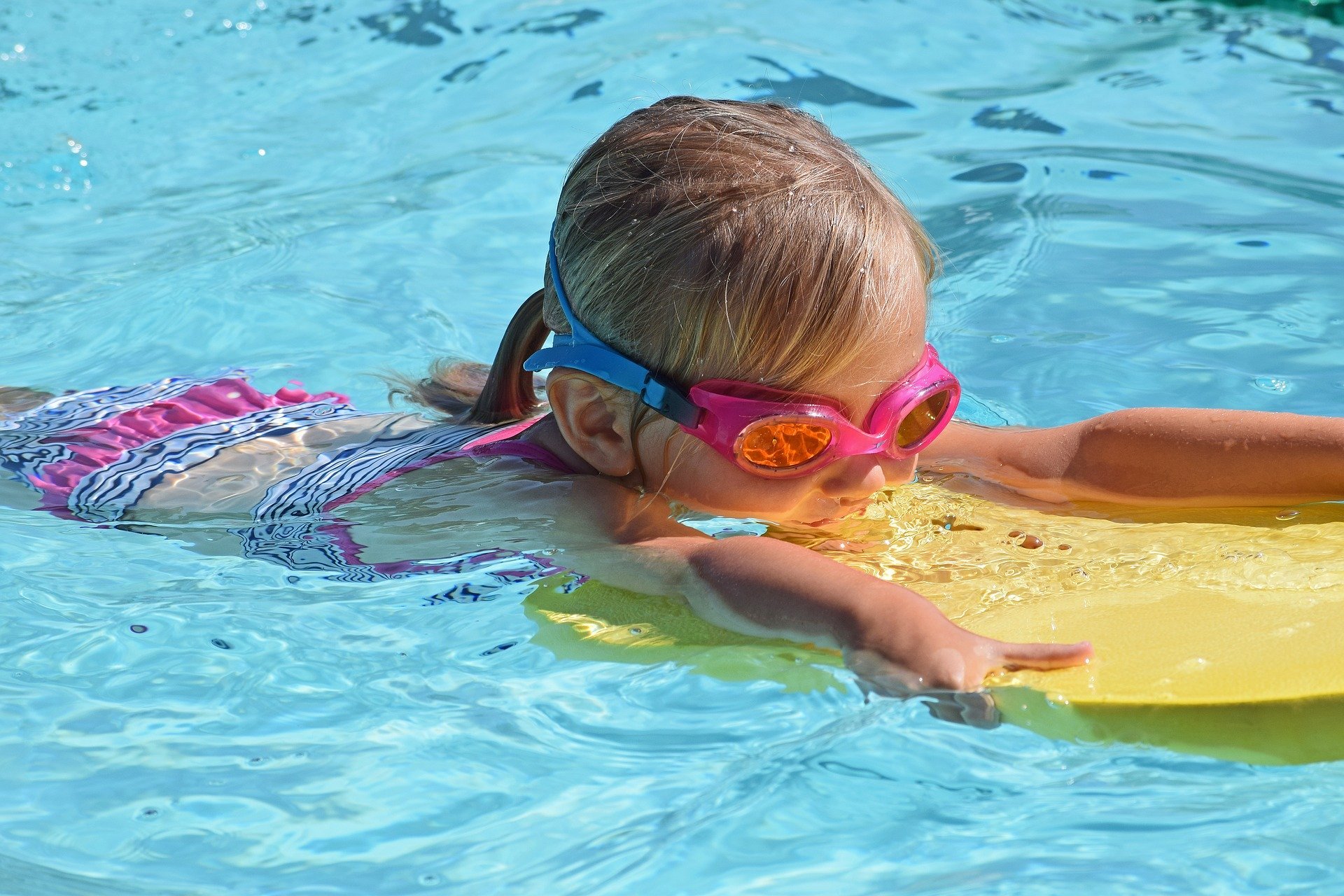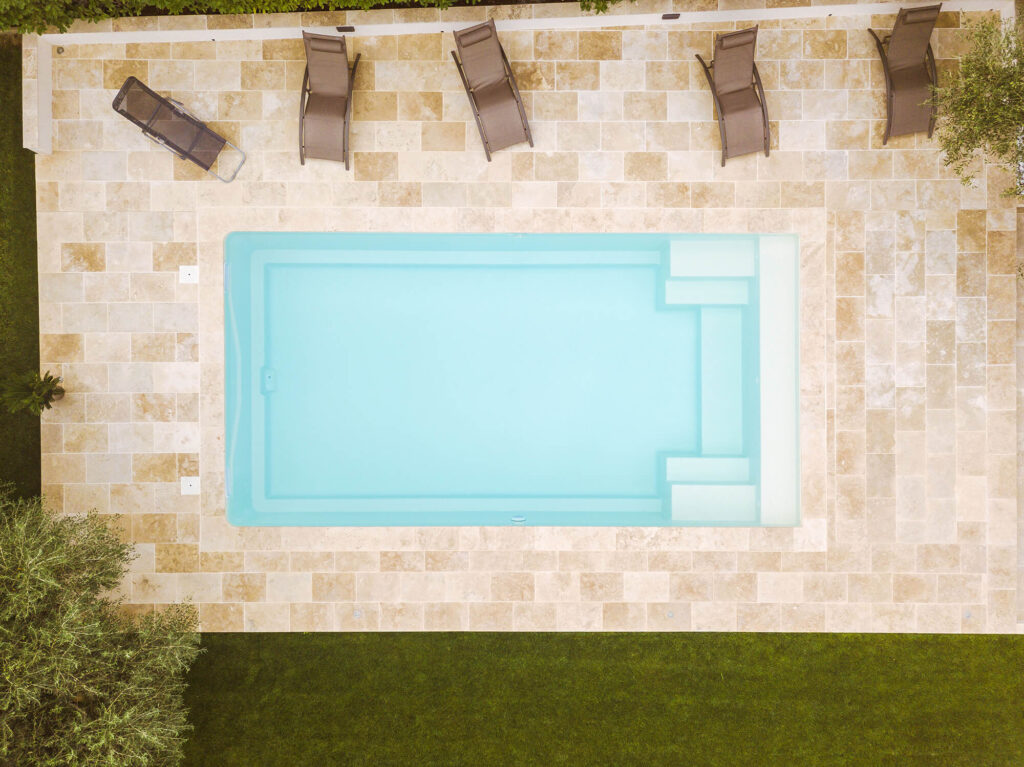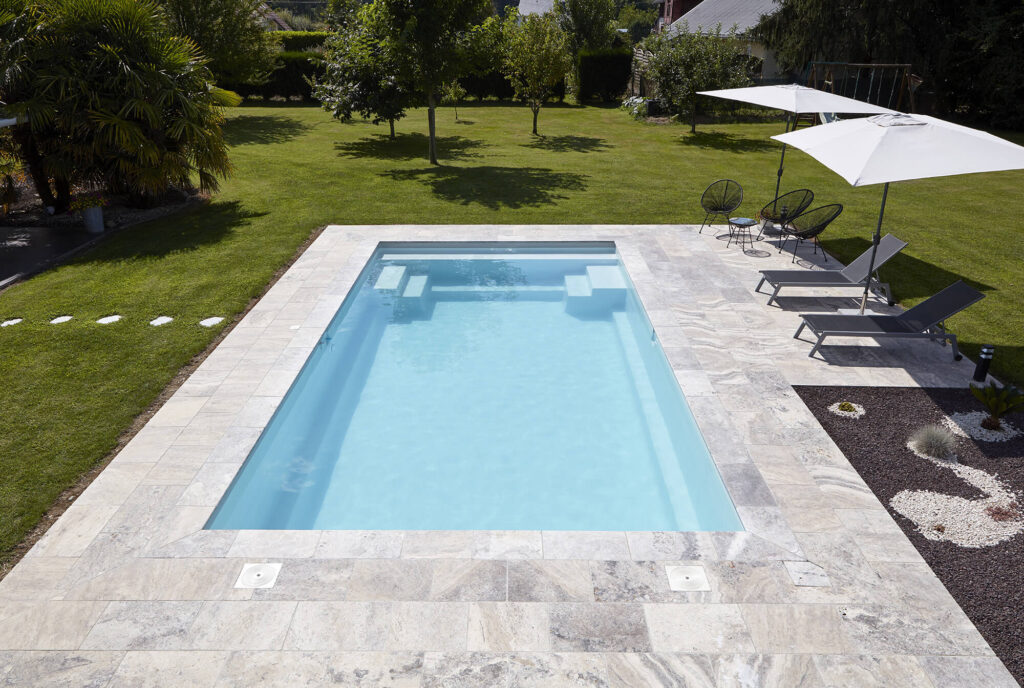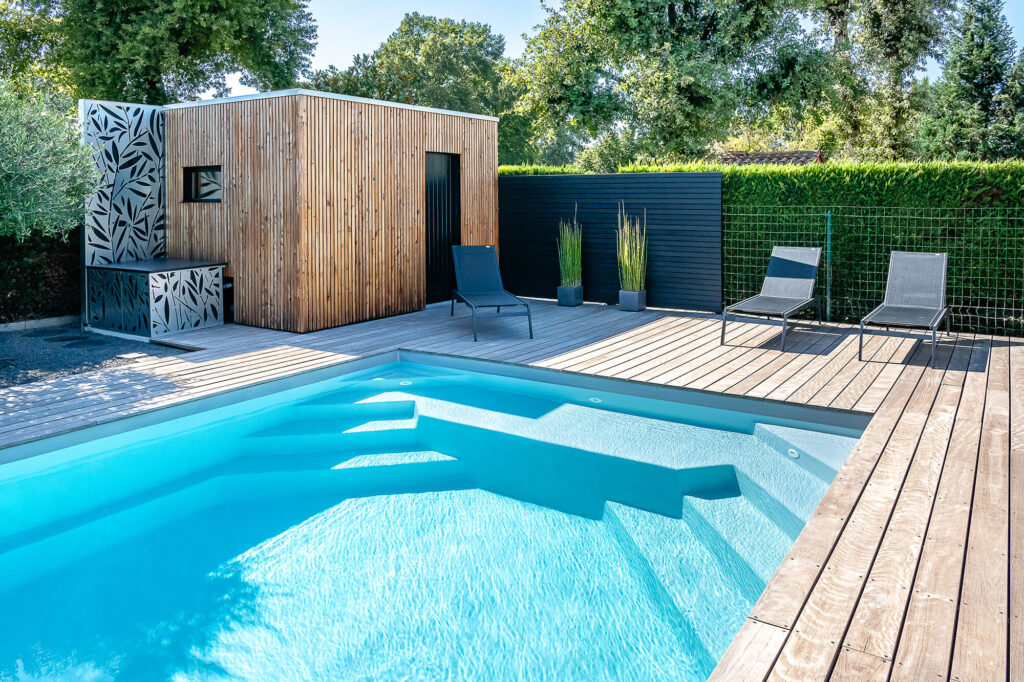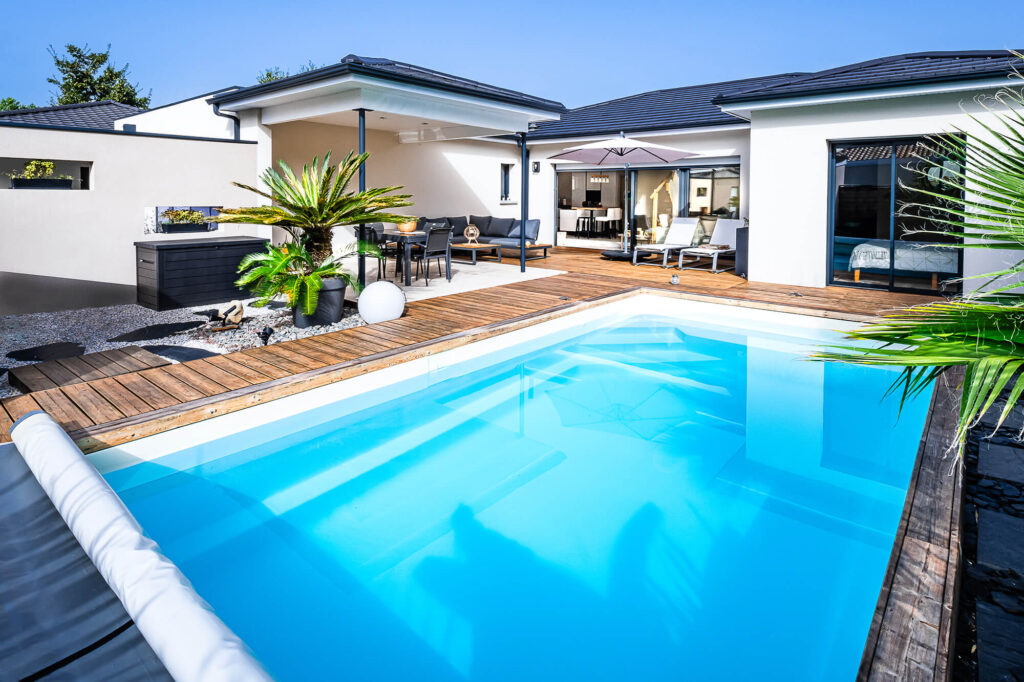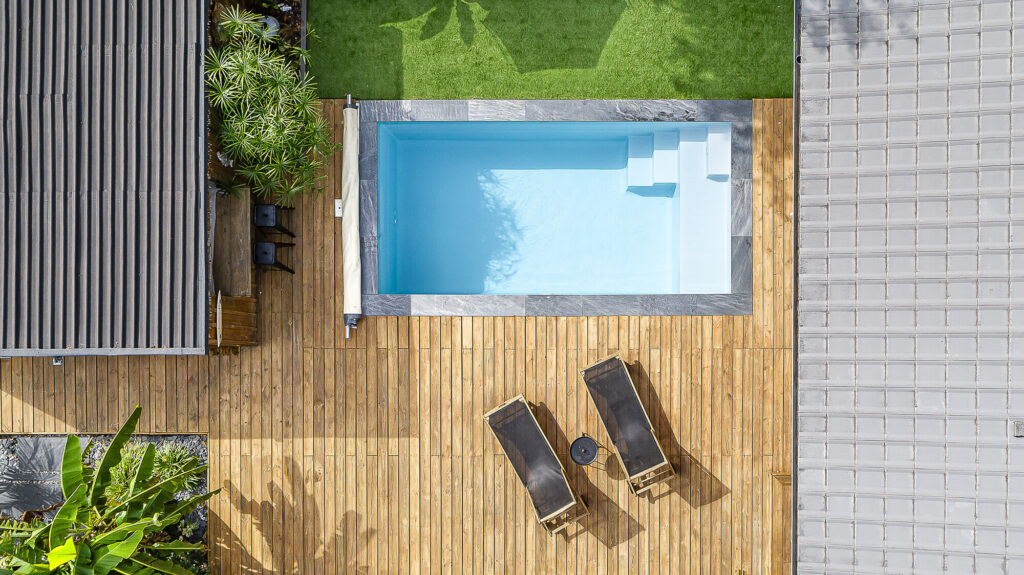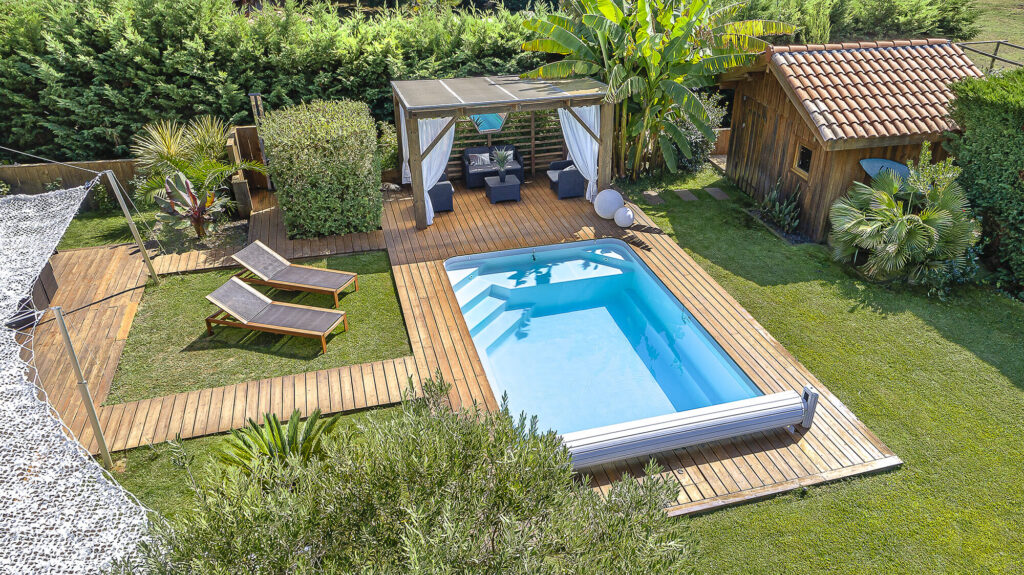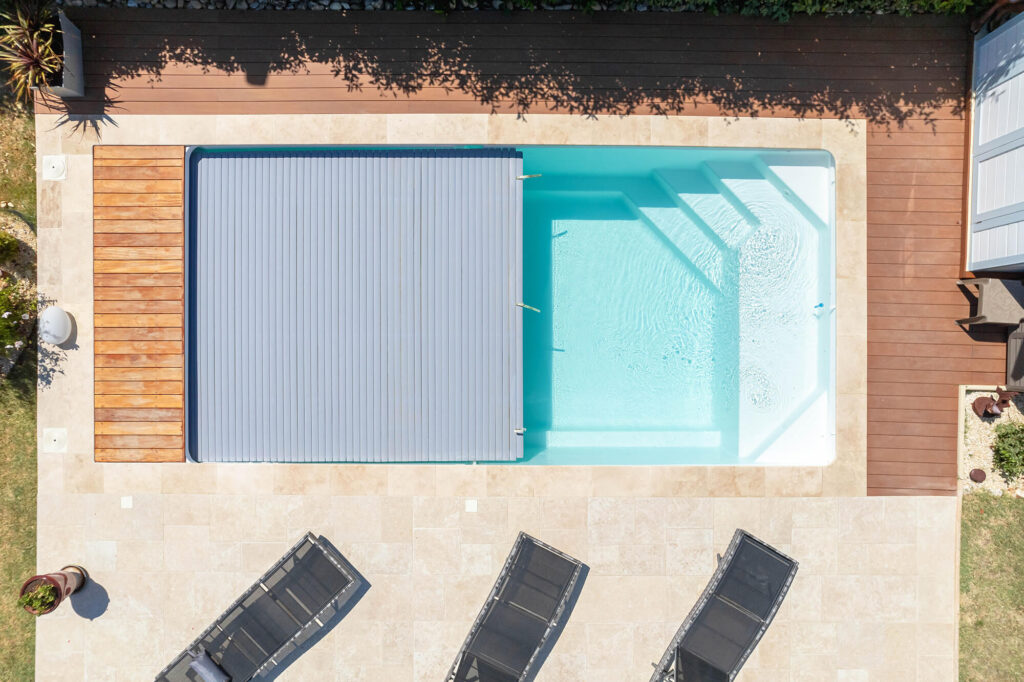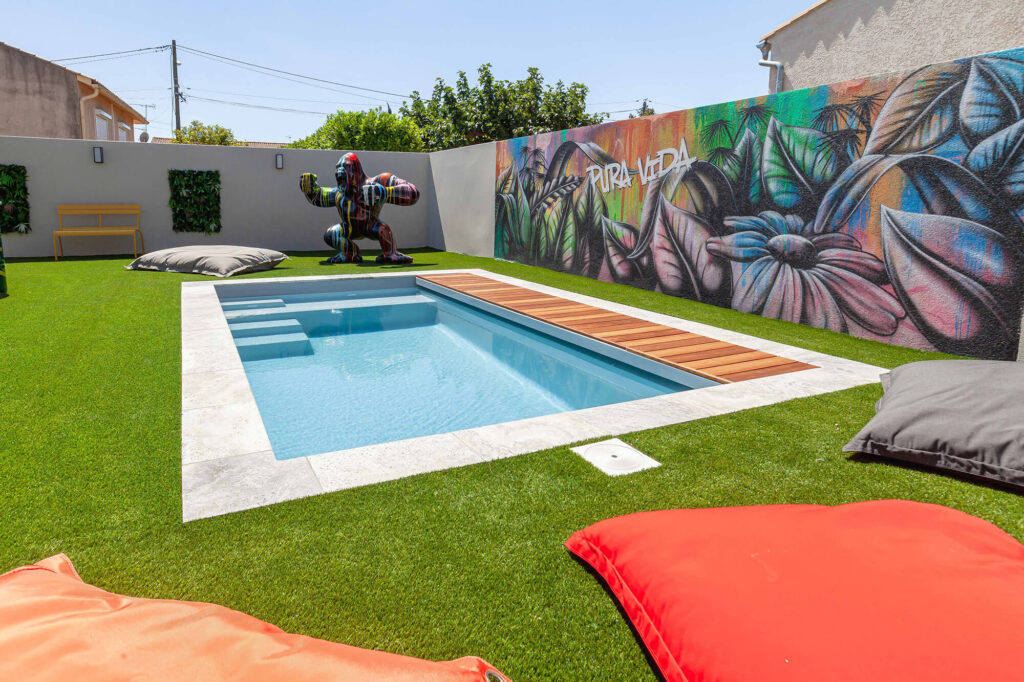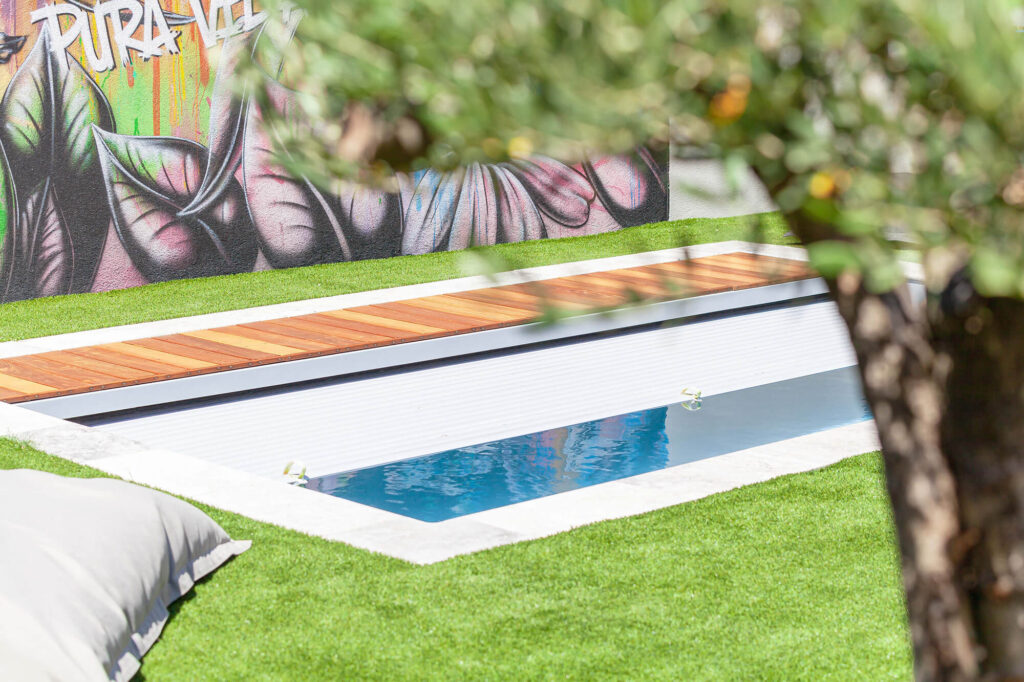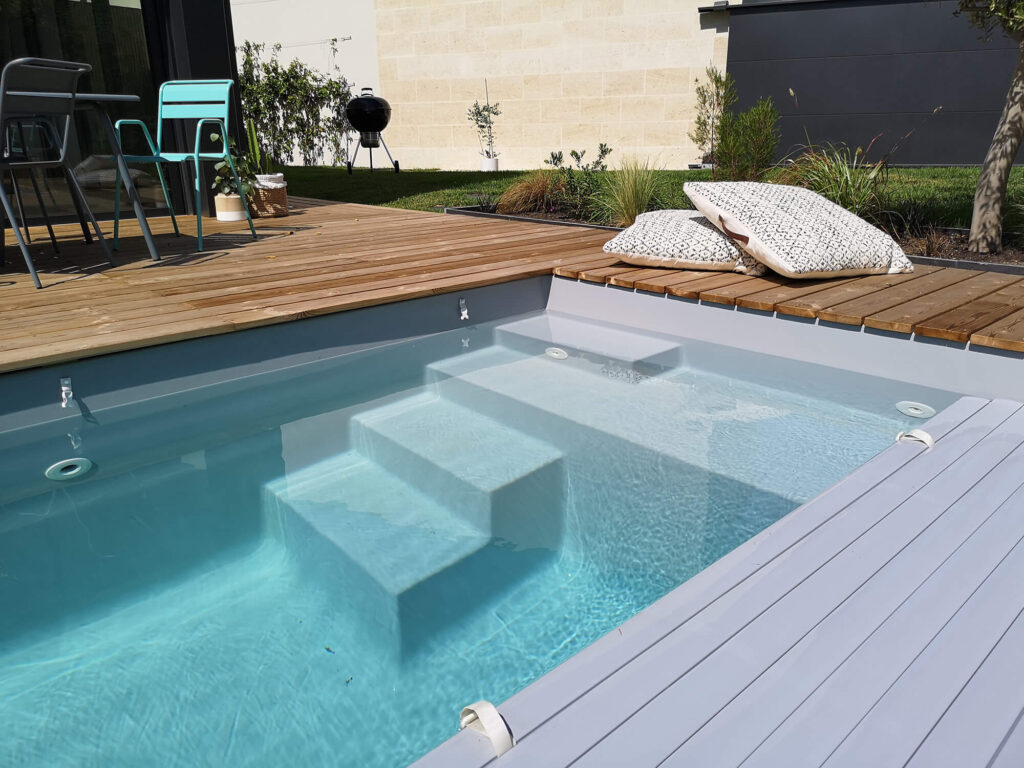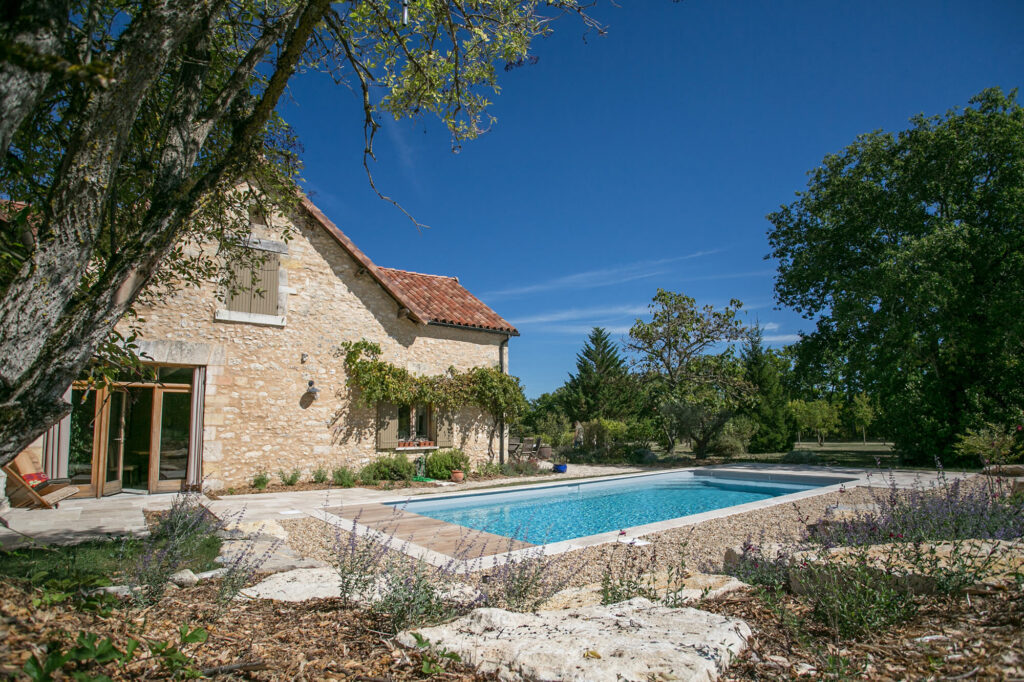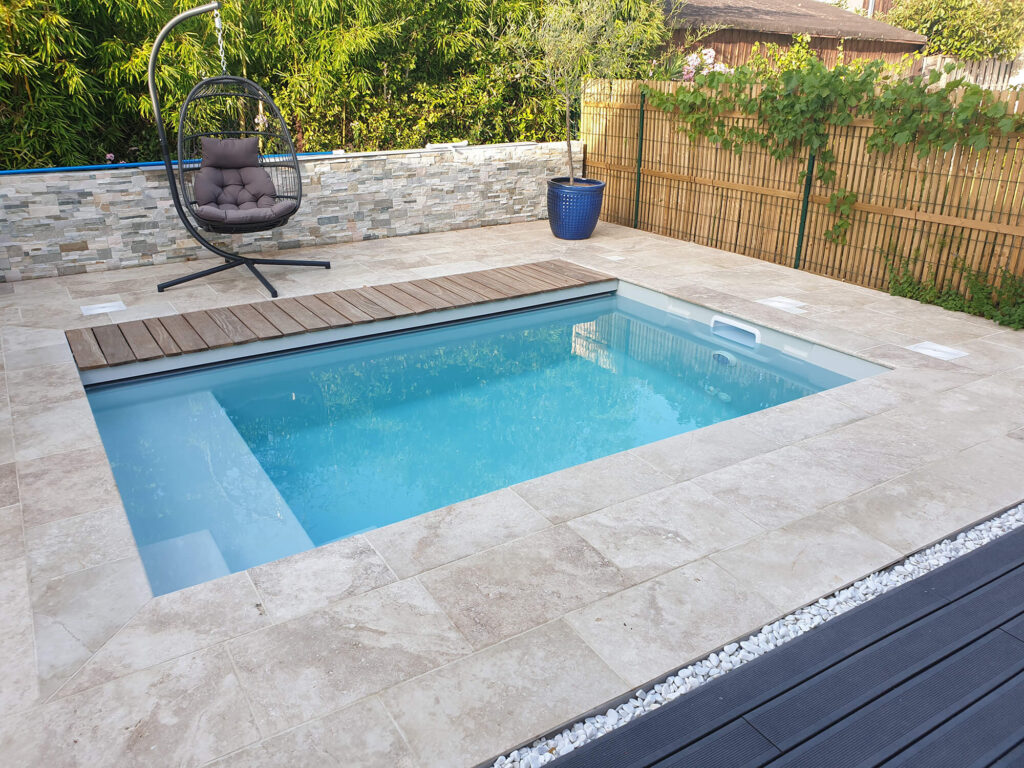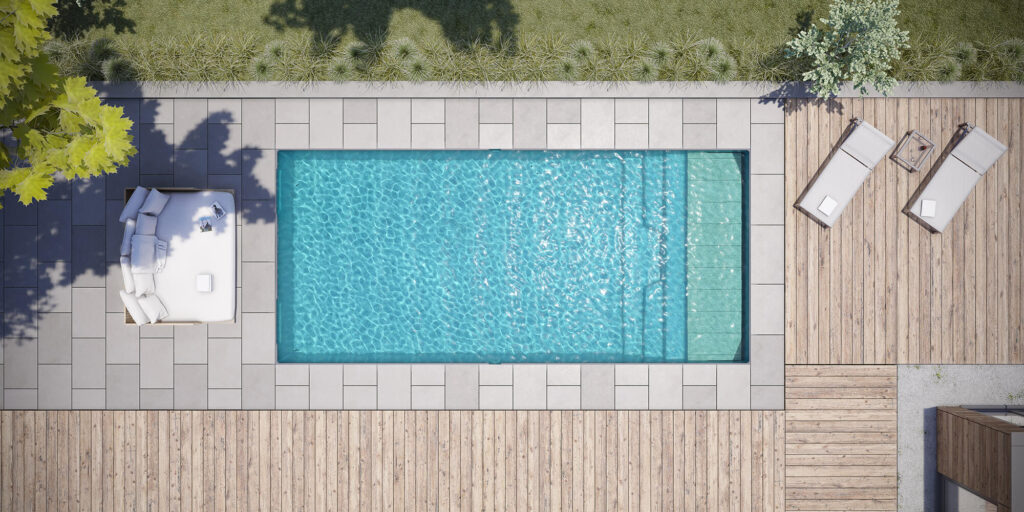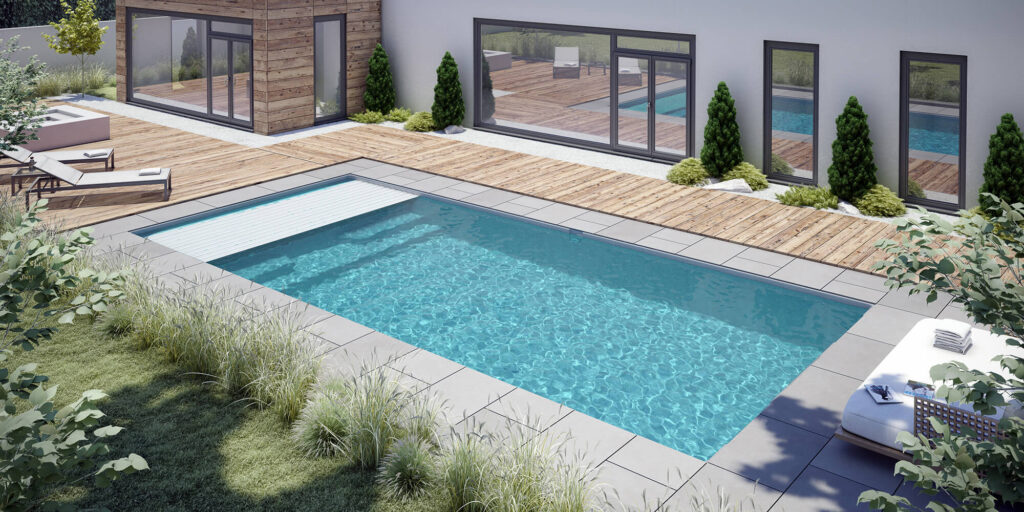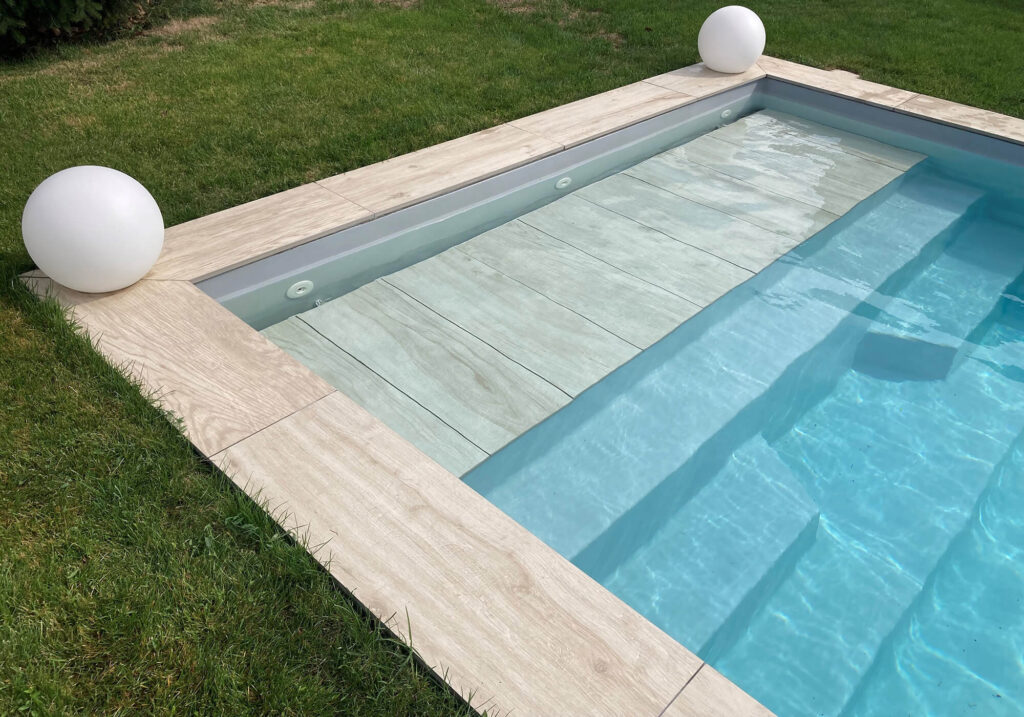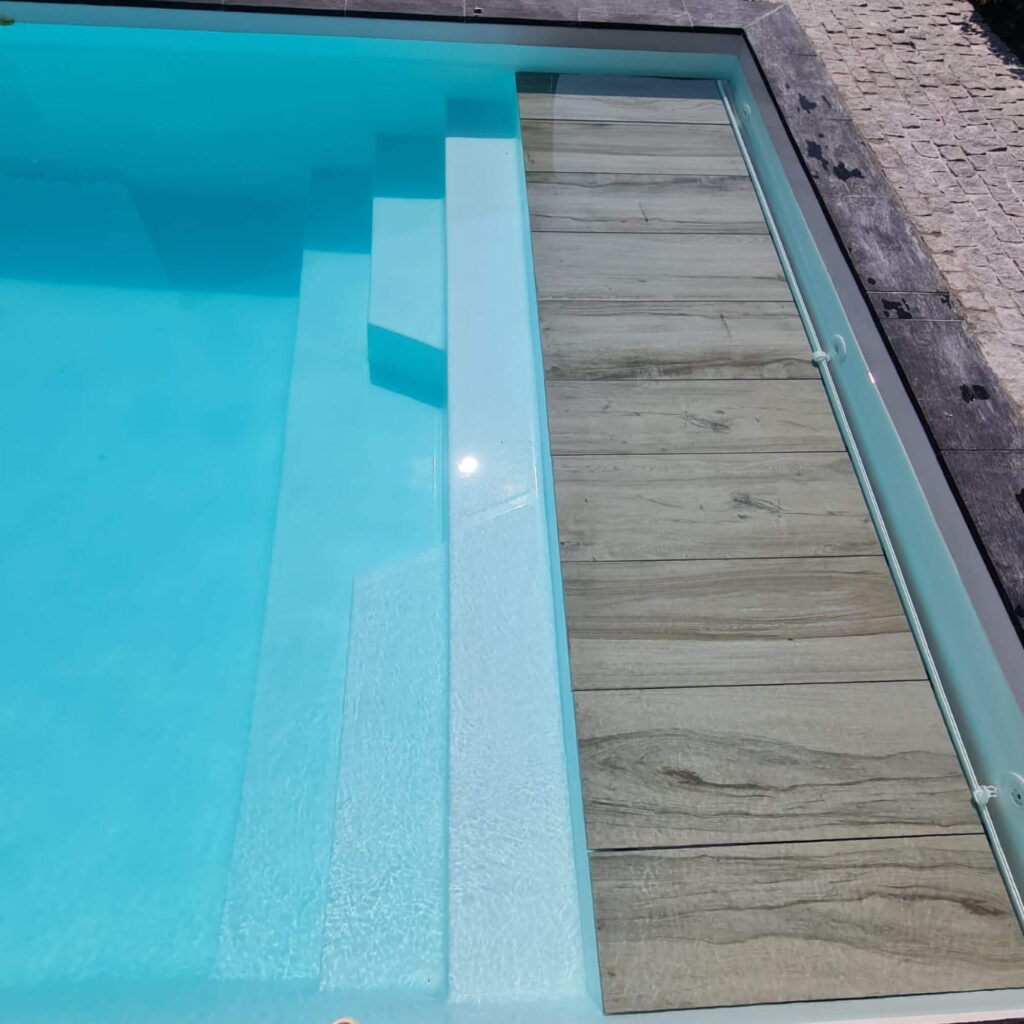Passer du temps dans sa piscine en famille ou entre amis est synonyme de moment de détente, de plaisir et de partage. Malheureusement, la saison des baignades s’accompagne souvent de risques d’accidents et de noyades. Un risque qu’il faut éviter le plus possible.
Heureusement, il existe des systèmes de sécurité (abri de piscine, barrière, couverture automatique, etc.) conçus pour la protection de votre bassin. Mais si l’achat, l’installation et l’entretien d’une piscine représentent déjà un certain investissement financier, l’ajout d’un dispositif de sécurité a un certain prix et peut entraîner des dépenses supplémentaires…
Dans les lignes qui suivent, nous vous invitons à découvrir comment sécuriser une piscine avec l’un des dispositifs de sécurité les plus efficaces, qui tient compte de votre budget.
Pourquoi sécuriser sa piscine ?
Ce que dit la loi
Cet été, en 2023, la France a malheureusement enregistré 598 cas de noyades. Un chiffre alarmant, qui touche le plus souvent les jeunes enfants.
Face à cette réalité, la protection de sa piscine apparaît comme une mesure évidente. Et pour cause, outre la préoccupation de protéger ses proches, l’installation d’un système de sécurité est devenue une obligation légale.
En effet, pour lutter contre les risques de noyade, des lois ont été mises en place, notamment la loi “sécurité piscine” de 2006, qui impose aux propriétaires de piscine privée, enterrée ou semi-enterrée, de sécuriser leur bassin. Cette législation a prouvé son efficacité, car depuis sa création, le nombre de noyades a diminué malgré l’augmentation du nombre de piscines privées.
Si cette loi ne s’applique pas aux propriétaires de piscines hors-sol, cela ne signifie pas pour autant qu’ils doivent négliger la sécurité. Il est fortement recommandé de sécuriser sa piscine, quelle qu’elle soit, pour prévenir les risques d’accidents de noyades.
Sur le marché, de nombreux systèmes de sécurité sont disponibles pour les propriétaires, leur permettant de choisir celui qui convient le mieux à leurs besoins.
Les différents dispositifs pour sécuriser sa piscine
Il existe divers équipements qui permettent d’assurer la sécurité de sa piscine. Des dispositifs plus ou moins encombrant, plus ou moins coûteux et plus ou moins efficaces.
Un choix qui peut être, par conséquent, plus ou moins évident en fonction de vos besoins spécifiques.
Parmi les différents dispositifs de sécurité disponibles aujourd’hui, on retrouve les suivants :
– Les abris de piscine ;
– La couverture de sécurité (avec le volet piscine ou la bâche à barres piscine) ;
– La clôture ou la barrière de piscine ;
– L’alarme de piscine (immergée ou périmétrique)
Chacun de ces dispositifs présente des avantages et des inconvénients particuliers. Certains, en plus d’assurer la sécurité, peuvent prolonger la saison de la baignade en réduisant les efforts d’entretien et en impactant la température de l’eau ; c’est le cas de l’abri de piscine par exemple. D’autres, en revanche, sont plus discrets et n’altèrent pas l’esthétique de votre jardin, comme c’est le cas de la couverture de piscine (volet piscine ou bâche à barres).
Vous l’aurez compris ; le choix dépendra de plusieurs critères, tels que la taille et la disposition de votre bassin, le profil des utilisateurs de la piscine (enfants, grands enfants ou adultes) mais aussi de votre budget.
L’alarme de piscine, le dispositif le plus économique pour sécuriser sa piscine
Une alarme, deux possibilités
L’alarme de piscine est sans aucun doute l’option la plus économique. Conforme à la norme NF P90-307, l’alarme de piscine s’adapte particulièrement bien aux budgets restreints. Elle comprend un ensemble de capteurs qui surveillent le bassin, déclenchant un bruit sonore dès qu’une intrusion est détectée.
Actuellement, il existe deux types d’alarmes sur le marché : les alarmes immergées et les alarmes périmétriques (ou périphériques).
Il est important de bien choisir son alarme, en fonction de sa piscine et de ses besoins :
– L’alarme de piscine immergée utilise une ou plusieurs sondes pour détecter les mouvements dans l’eau. L’avantage de ce dispositif est qu’il reste invisible depuis l’extérieur et n’altère pas l’apparence de votre piscine ni de votre jardin. C’est également le dispositif le moins coûteux parmi les dispositifs de sécurité homologués.
– L’alarme périphérique, contrairement à l’alarme immergée, peut détecter les mouvements en amont, grâce à des bornes placées autour de la piscine. Cela en fait une option plus préventive, puisqu’elle vous alerte en cas de mouvement autour du bassin, selon un périmètre plus ou moins large préalablement défini.
Comment bien choisir son alarme de piscine ?
Une fois que vous avez présélectionné le modèle souhaité, vous devez vous assurer qu’il est conforme aux normes en vigueur. En théorie, les alarmes non-homologuées ne devraient pas être commercialisées, mais il est important de vérifier que le modèle choisi soit bel et bien homologué et respectueux des normes actuelles.
Pour être en accord avec la réglementation, plusieurs points méritent votre attention :
– La puissance sonore de l’alarme de piscine doit être au minimum de 100 décibels à 1 mètre de distance ;
– Elle doit mentionner la norme NF P90-307 ;
– Elle doit être équipée d’un système de réactivation automatique ;
– Elle doit être compatible avec le type de bassin que vous possédez ;
– Il est recommandé de privilégier une marque de référence, reconnue pour sa fiabilité en matière d’alarme.
Contrairement aux couvertures à barres ou aux autres types de couvertures, l’alarme de piscine est très simple et rapide à mettre en place. La protection de votre bassin se fait en deux temps trois mouvements, simplement en programmant l’alarme en fonction de vos critères et en la plaçant dans l’eau, s’il s’agit d’une alarme immergée.
Il est préférable de choisir un produit de qualité, fiable et durable qui pourra résister aux aléas météorologiques. Néanmoins, il est important de vérifier votre dispositif en début de chaque saison de baignade, pour s’assurer de son bon fonctionnement. Tout ça dans le but d’éviter les accidents de noyade.
Au-delà des dispositifs de sécurité, il est important de rappeler qu’aucun de ces équipements ne dispensent les personnes présentes autour du bassin de rester vigilantes. La surveillance est primordiale, surtout lorsque des enfants sont présents aux abords de la piscine !
Configurez votre piscine en ligne Revenir à toute l'actualité